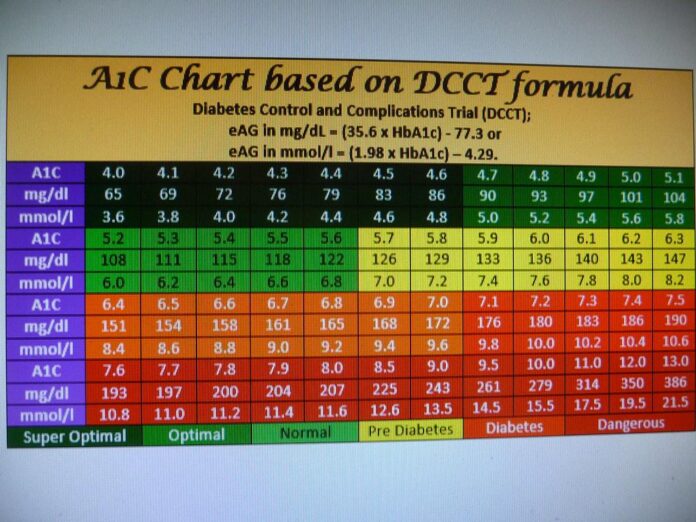
Having a normal HbA1c level is an important indicator of good health for individuals with diabetes. HbA1c, also known as glycated hemoglobin, is a measure of the average blood glucose levels over a period of two to three months. It is used to monitor and manage diabetes by healthcare professionals. Understanding what a normal HbA1c level means for your health can help you take control of your diabetes and prevent complications.
What is a Normal HbA1c Level?
A normal HbA1c level is typically between 4% and 5.6%. For individuals with diabetes, the target range for HbA1c is usually less than 7%. This target range may vary depending on individual circumstances, such as age, duration of diabetes, and overall health.
Why is HbA1c Important for Health?
Maintaining a normal HbA1c level is critical for overall health and well-being, especially for individuals with diabetes. High blood glucose levels over time can lead to serious complications such as heart disease, stroke, kidney disease, and nerve damage. By keeping your HbA1c level within the normal range, you can reduce the risk of developing these complications and improve your quality of life.
What Does a Normal HbA1c Level Mean for Your Health?
Having a normal HbA1c level means that your blood glucose levels are well-controlled and within healthy limits. This indicates that your diabetes management plan, which may include medication, diet, exercise, and regular monitoring, is effective in keeping your blood sugar levels stable. By maintaining a normal HbA1c level, you can prevent the onset of complications and lead a healthier, happier life.
How to Achieve a Normal HbA1c Level
Achieving a normal HbA1c level requires a comprehensive approach to diabetes management. Here are some tips to help you keep your blood sugar levels within the normal range:
1. Monitor your blood sugar regularly: Checking your blood sugar levels regularly, as recommended by your healthcare provider, can help you identify patterns and make necessary adjustments to your diabetes management plan.
2. Follow a healthy diet: Eating a balanced diet that includes a variety of fruits, vegetables, whole grains, lean proteins, and healthy fats can help control your blood sugar levels and maintain a normal HbA1c level.
3. Stay active: Regular physical activity, such as walking, running, swimming, or cycling, can help lower your blood sugar levels and improve insulin sensitivity.
4. Take your medication as prescribed: If you are on diabetes medication, make sure to take it as directed by your healthcare provider. Skipping doses or taking medication inconsistently can lead to fluctuations in blood sugar levels.
5. Work with your healthcare team: Collaborating with your healthcare provider, diabetes educator, nutritionist, and other members of your healthcare team can help you develop a personalized diabetes management plan that meets your individual needs.
The Benefits of Maintaining a Normal HbA1c Level
Maintaining a normal HbA1c level offers numerous benefits for your health and well-being. These include:
1. Reduced risk of complications: By keeping your blood sugar levels within the normal range, you can lower the risk of developing serious complications associated with diabetes, such as heart disease, stroke, kidney disease, and nerve damage.
2. Improved quality of life: Maintaining a normal HbA1c level can help you feel better and have more energy to participate in activities you enjoy. It can also reduce the physical and emotional burdens of managing diabetes.
3. Better overall health: Controlling your blood sugar levels can positively impact your overall health by lowering inflammation, improving circulation, and boosting your immune system.
4. Increased longevity: Studies have shown that individuals with diabetes who maintain a normal HbA1c level have a lower risk of premature death compared to those with poorly controlled blood sugar levels.
In conclusion, having a normal HbA1c level is a key component of good health for individuals with diabetes. By monitoring your blood sugar levels, following a healthy lifestyle, and working with your healthcare team, you can achieve and maintain a normal HbA1c level to reduce the risk of complications and improve your quality of life. If you have diabetes, it is important to prioritize your health by keeping your HbA1c level within the target range. Remember that small changes in your daily routine can lead to significant improvements in your health and well-being.












